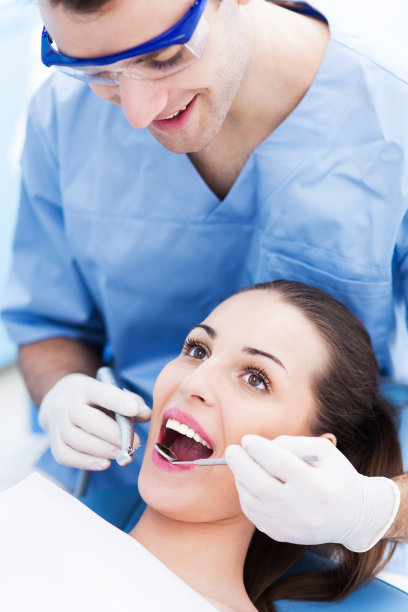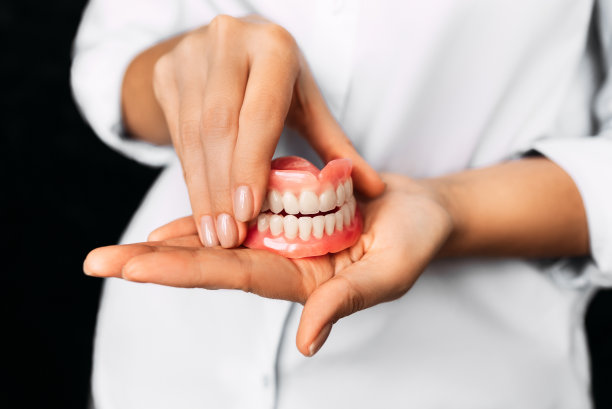Summary: Proper care and healing after tooth extraction are crucial for optimal oral health. This process not only alleviates discomfort but also promotes effective healing, thereby preventing complications. The article delves into the significance of aftercare, emphasizing effective pain management, maintaining hygiene, and recognizing signs of infection. Additionally, it touches on the importance of following professional dental advice to ensure a smooth recovery. By adhering to these guidelines, patients can significantly improve their healing process and protect their long-term dental and overall health.
1. Effective Pain Management After Extraction

One of the primary concerns following a tooth extraction is managing pain effectively. After the procedure, patients can expect varying degrees of discomfort, making pain management essential. Over-the-counter pain relievers such as ibuprofen or acetaminophen are often recommended by dental professionals to alleviate any pain. In some cases, stronger medications may be prescribed, especially if the extraction was complicated.
Additionally, applying a cold compress to the outside of the face can help reduce swelling and numb the area, contributing to pain relief. Patients should be cautious, however, not to overuse ice packs to avoid skin damage. Following the dentists specific guidelines regarding medication dosages is vital to achieving optimal pain control and promoting comfort during the healing process.
Finally, it is crucial for patients to rest adequately after the extraction, as excessive physical activity may aggravate swelling and pain. Understanding the importance of managing pain in a structured way can vastly improve the post-extraction experience.
2. Importance of Maintaining Oral Hygiene
Maintaining oral hygiene after a tooth extraction is vital for a smooth recovery. While it is crucial to keep the mouth clean, patients must approach hygiene with care during the initial healing phase. Dentists typically recommend avoiding vigorous rinsing or brushing of the extraction site for the first 24 hours to prevent dislodging the blood clot that forms in the socket, which is vital for healing.
Once the initial period has passed, gentle rinsing with warm salt water can be beneficial in promoting healing and preventing infection. Saltwater not only helps to clean the area but also reduces inflammation and soothes discomfort. Patients should keep an eye on their brushing technique and ensure they brush their teeth without bothering the extraction site.
Good oral hygiene promotes healing and wards off potential complications such as dry socket and infections, highlighting the importance of careful yet effective cleaning methods in the recovery process.
3. Recognizing Signs of Infection Early
Recognizing the signs of infection early is crucial for a successful recovery post-extraction. Common symptoms include excessive swelling, persistent pain that worsens instead of improving, and unusual discharge from the extraction site. Alerting a dental professional immediately if any of these signs are observed can help in addressing the issue promptly.
Additionally, patients should be aware that fever can also indicate an infection. Engaging in proactive monitoring of one’s health signals the importance of vigilance during recovery. Infections can lead to severe complications, including the need for further medical intervention, thus stressing the need for early detection.
Following the initial post-extraction check-up, it may be necessary for patients to schedule follow-up appointments to ensure proper healing. Regular consultations can help verify the healing process is on track, offering peace of mind and swift action if problems arise.
4. Following Professional Dental Advice
Adhering to professional dental advice is paramount in promoting healing post-extraction. Dentists provide customized post-operative instructions that cater to individual needs based on the complexity of the extraction and the patient’s health status. Following this advice can significantly mitigate complications and enhance healing.
Patients should refrain from engaging in smoking or consuming alcoholic beverages, as these habits can hinder the healing process and increase the risk of complications. Furthermore, returning for post-operative check-ups allows the dentist to monitor the recovery process more closely and address any questions or concerns that may arise.
Ultimately, education plays a critical role in recovery; understanding what to expect and how to care for oneself ensures patients effectively follow through with their post-extraction care, setting them up for long-term oral health success.
Summary:
In conclusion, proper care and attention following a tooth extraction are essential to achieving optimal oral health. Methods such as effective pain management, maintaining hygiene, vigilant monitoring for infection, and adhering to professional dental advice all contribute significantly to a seamless recovery process.
By prioritizing these aspects, patients can safeguard their health, minimize discomfort, and ensure a positive outcome after tooth extraction. Each element of care plays a significant role in the healing journey.
This article is compiled by Vickong Dental and the content is for reference only
Vickong Dental
Vickong Dental is a large medical group established in Hong Kong in 2008 by professors from well-known medical universities in Guangdong and Hong Kong, as well as medical doctors from key national '985' universities (including Master's supervisors and senior professors). The chain of branches brings together expert dentists with PhDs and Master's degrees from Hong Kong and Mainland China, committed to providing high-quality dental treatment.
"Vickong Dental Practices the University Motto of 'Healing and Serving Society,' with a Stable Operation for Sixteen Years. It Has Been honored with Hong Kong Enterprise Leaders's Choice,' and is a Global Trusted Implant Center for the Nobel Implant System. Recommended by Hong Kong Metro Broadcast and Guangdong Television, it Serves Customers from Over Thirty Countries and Regions, Gaining the Trust and Favor of Citizens from the Guangdong-Hong Kong-Macau Greater Bay Area and Surrounding Cities.

Thousands of customers' unanimous praise
The most recognized and highly recommended dental service by customers in the Guangdong-Hong Kong-Macau Greater Bay Area
We Ensure You Receive Detailed Care and Attention Here
Hong Kong standards, Shenzhen prices, Your Trusted English-speaking dentists

Vickong Dental Medical-Grade Instrument Disinfection Process
Vickong Dental Medical-Grade Instrument Disinfection Process

Vickong Dental Chain: A Warm and Comfortable Environment for Treatment






Appointment Hours

Q&A
Why choose Vickong Dental?
Vickong Dental practices the university motto 「Medicine to Benefit Society」, with each branch bringing together highly qualified dentists with doctoral and master’s degrees from Hong Kong and the Mainland, and has maintained seventeen years of steady operation。Recipient of 「2024 Hong Kong Enterprise Leaders Brand」, 「2025 Hong Kong Enterprise Leaders Brand」, a Nobel Biocare Global Trusted Implant Center, and a brand recommended by Metro Radio Hong Kong and Guangdong TV。
To date, we have served customers from more than thirty countries and regions,earning exceptionally high word-of-mouth recognition and trusted recommendations from residents across the Guangdong-Hong Kong-Macao Greater Bay Area and surrounding cities
We have eight major branches in Zhuhai、Shenzhen,and a consultation and service assurance center in Hong Kong,so you can book a free consultation at any time for any questions,which is very reassuring.
If I do not accept the quotation after the CT scan, will I be charged??
No! As long as the actual treatment has not started, you will not be charged any fees.
Will there be any additional charges during the treatment process?
No, there won’t be any additional charges. Before treatment begins, we will clearly explain the treatment plan and its corresponding fees. Only after the patient agrees and signs the consent form will we proceed with the dental service.
Can I pay in Hong Kong dollars?
Yes. Vickong Dental accepts payment in Hong Kong dollars. The amount will be converted based on the exchange rate of the day, and the applicable rate will be clearly communicated to you in advance.
Can I reschedule my appointment at any time?
Yes. Please contact us via **WeChat** or **WhatsApp** as early as possible, providing your original appointment time and details, along with your preferred new date and time slot for rescheduling.













